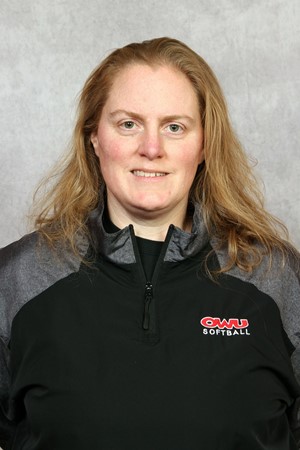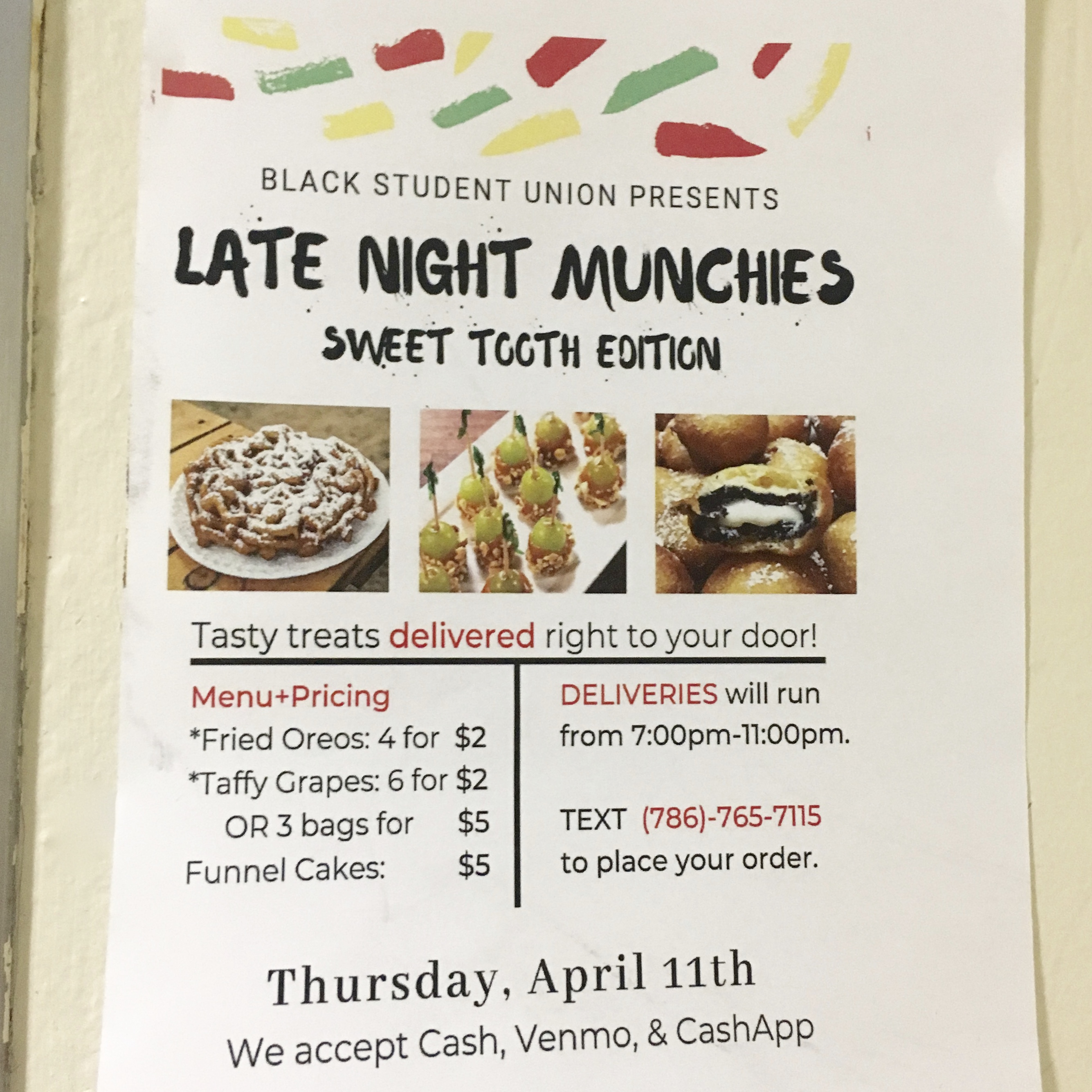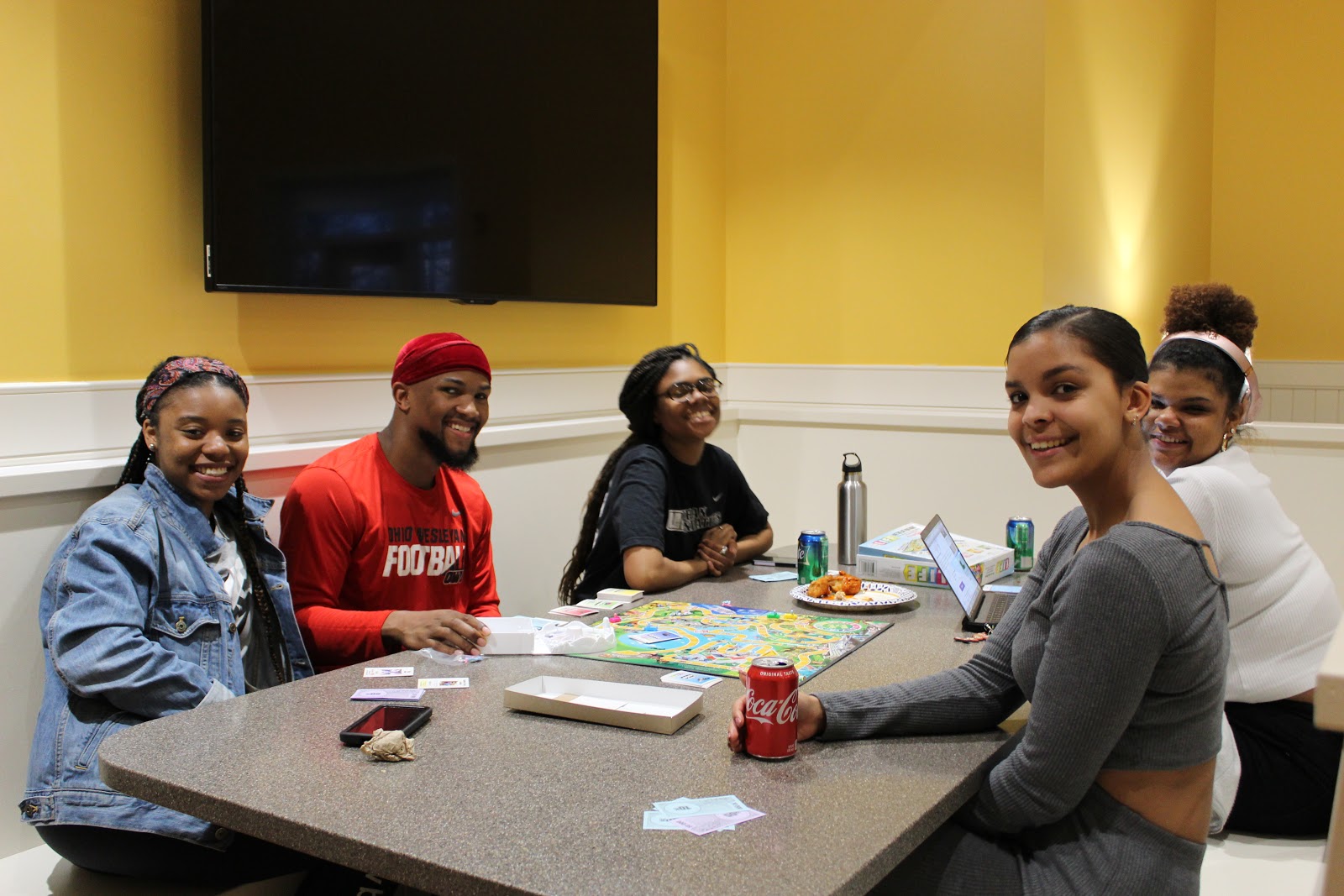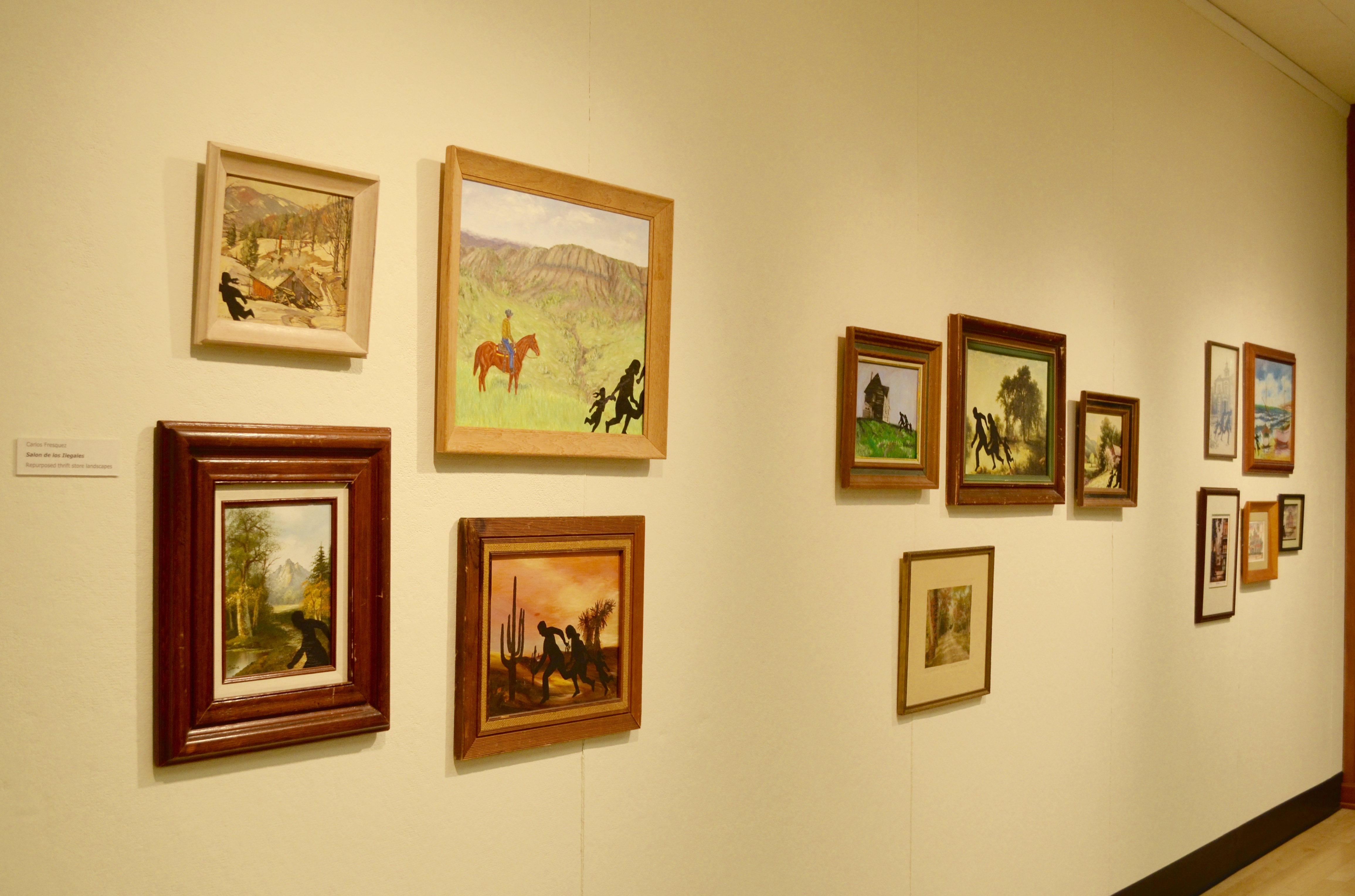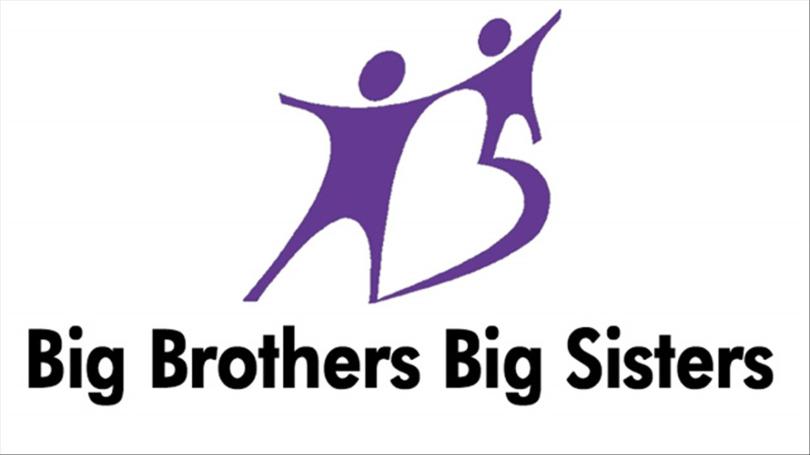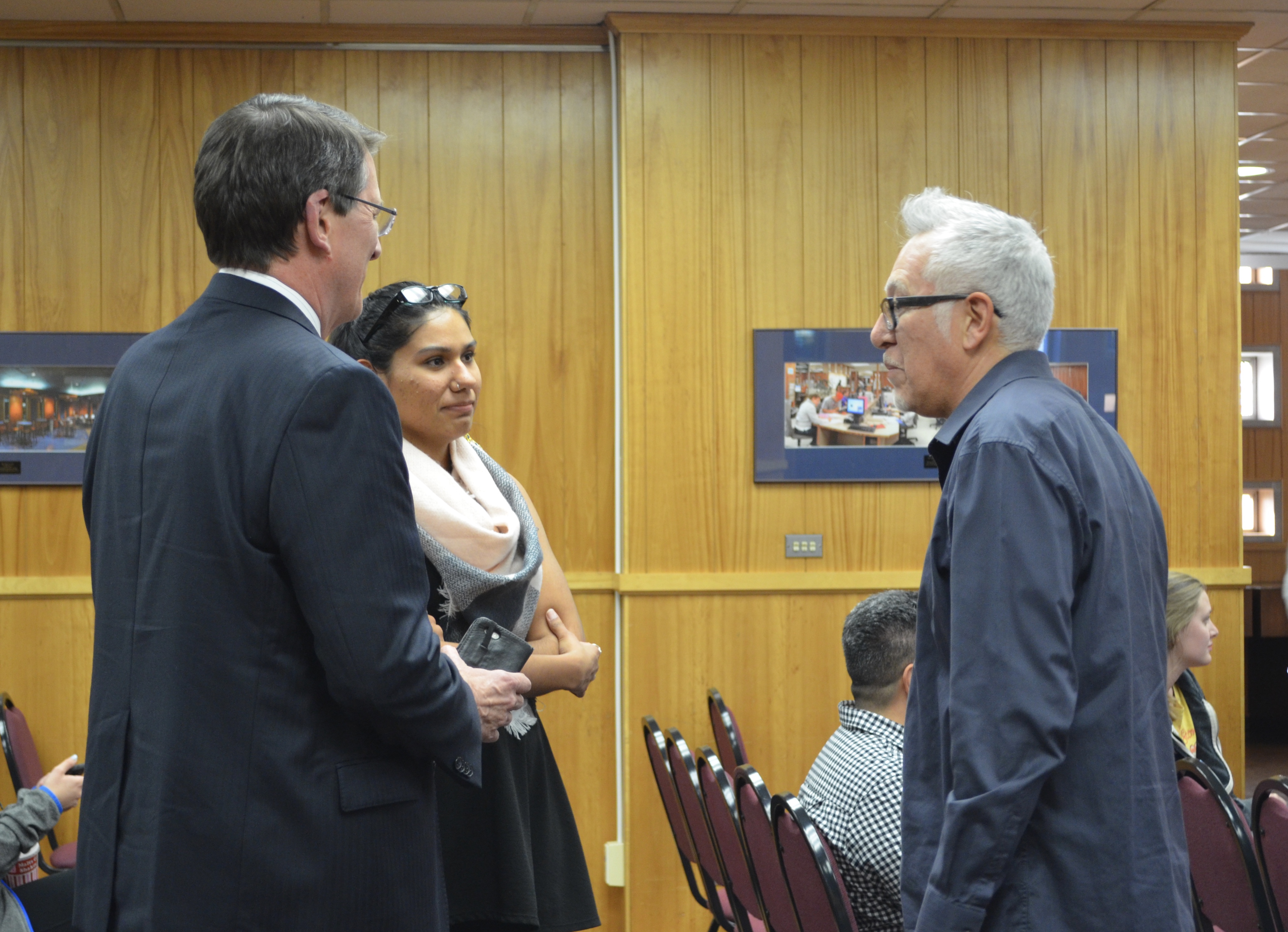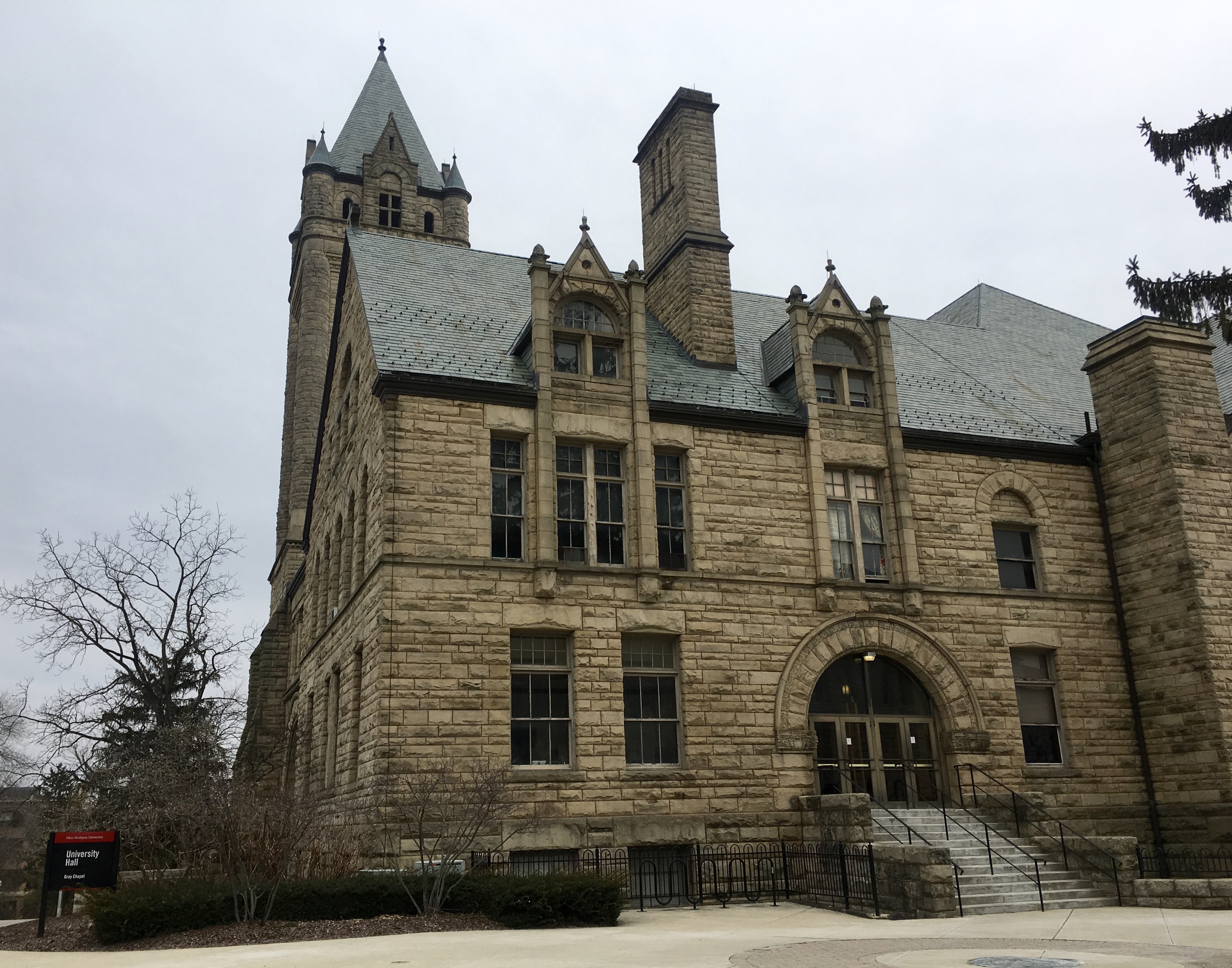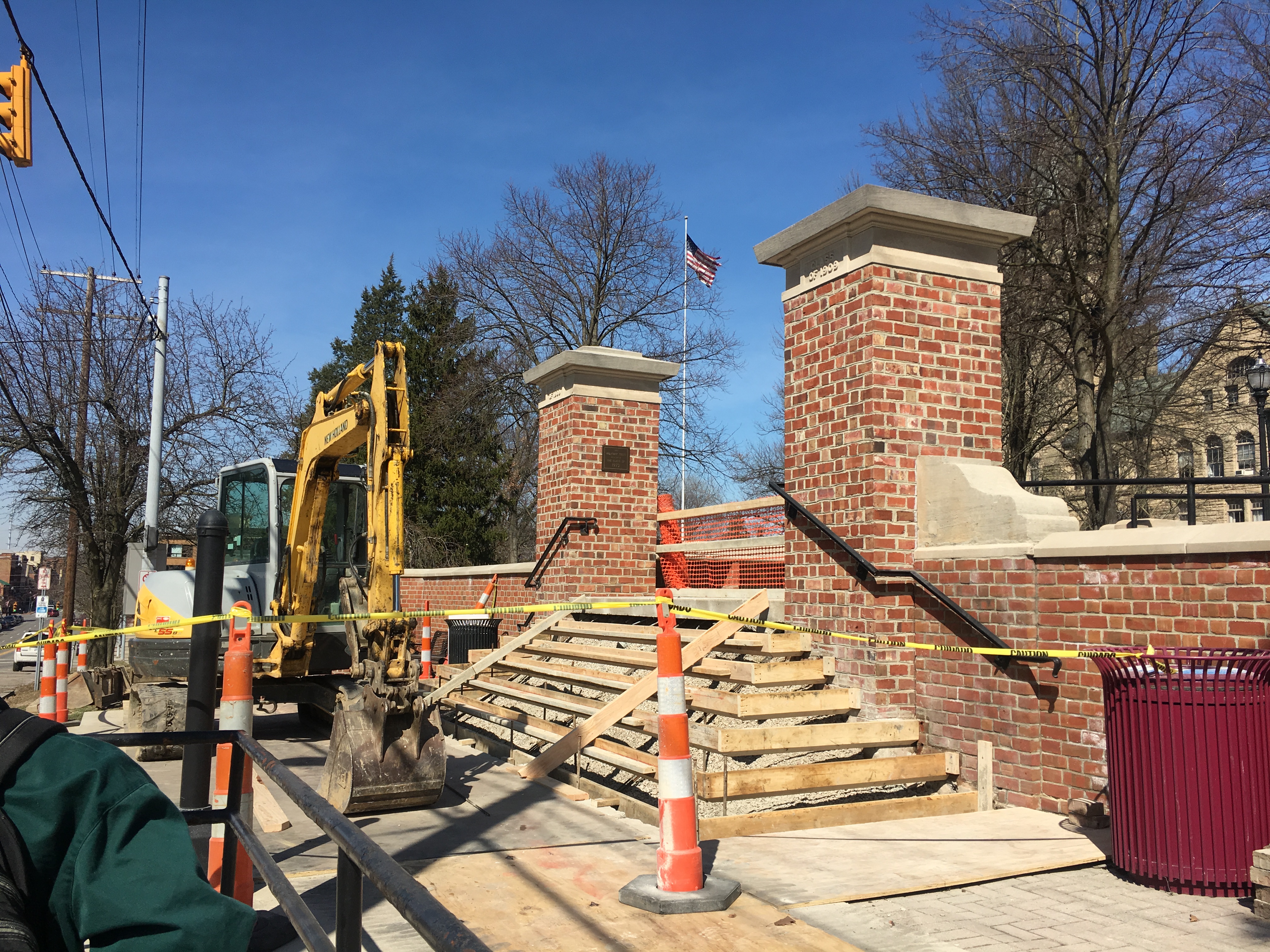By Kienan O’Doherty
Transcript Correspondent
kcodoher@owu.edu
Always keep your pants up. And make sure you wear a belt.
Austin didn’t, and he shattered his ankle falling 15 feet into a construction site. The result: surgery priced at $45,000.
At 6 feet 3 inches tall and 215 pounds, Austin is nowhere near a small human being. A varsity athlete in high school, he was a member of the OWU track and field team before chronic shoulder pain ended his athletic career early. So, naturally, one would think it would take a lot to seriously injure a man of his size.
Unfortunately, at times, Austin is also a college student. He’s the type of kid that comes to college and fully embraces the college drinking stereotype. Sometimes he drank more than was needed, more common among college students than not. We have not used the subject’s full name in this story.
This was certainly one of those times.
It’s typical Saturday night at Ohio Wesleyan University. Students gather in dorm rooms for the “pregame:” otherwise known as drinking before the party. Then in groups, some large, some small, students move to where a party was located, taking full advantage of their outside voices while conversing. Post party, it is time to move to the bar scene in Delaware, which in many OWU students’ minds is Clancey’s Pub, a bar which opens up to kids aged 18+ each Friday and Saturday.
The main route students take to the bar is down Spring Street: passing a closed Napa Auto Parts, a paint store, and a lit up Fuller Memorials, tombstones and all.
Austin is in a group that opts to take a different route. They walk down West William Street, where William Street United Methodist Church, Tim Horton’s, and a former school are located. Cars speed by so fast, to the students it seems like they leave their headlights behind. Usually one would see Austin wearing a long-sleeve button down underneath a vest, his jet-black hair gelled to perfection with V76 by Vaughn. But tonight, Austin has borrowed a Patagonia quarter-zip from a friend, and a Zac Brown Band cap covered his hair. They’re swaying back and forth, struggling to walk in straight lines. Up on the left is the only Domino’s in town.
The Domino’s.
At this point, with 100 feet until they pass Domino’s, Austin decides to pull down is Lucky brand pants, perfectly comfortable with this in public. He only walks 10 more feet before a cop sees him.
The cop is going the opposite direction. But he turns around as fast as Austin pulled down his pants. His tires are screeching, blue and red lights flashing, siren blaring. That is when Austin pulls up his pants and started running as fast as his new Prada driving shoes could take.
Sprinting.
He stays to the left of the Domino’s, passing through two parking lots that are separated by chains, which Austin clears with ease and keeps running. At the end of the second parking lot Austin hops over a fence and sees an apartment that looks eerily like a trailer home.
Wanting nothing to do with where he was, Austin hops back over the fence and runs through the parking lots again, this time arriving at a different fence in the back-left corner. It takes him little time to climb over the fence. Which maybe was a little too fast.
He drops eight feet from the top of the fence and lands on his face. From that fall he has obtained new scratches. He starts laughing as he sees he has fallen into a backyard.
Completely disoriented, Austin looks around for any of the familiar flashing blue and red lights and starts running toward the street. It is pitch black, so he doesn’t even know where the street is. He turns, sees a house, and drops.
15 feet.
Austin just fell into the foundation of a new house.
He is knocked out for five minutes and is still disoriented when he regains consciousness. He sits up and immediately realizes that his left leg felt numb.
Using his senses, Austin tries to drunkenly get a sense of his environment. All he feels are dirt and a concrete wall. The pitch black made it nearly impossible to see, and he tries to hear any noise.
There is complete silence.
He slowly stands up and tries to take two steps. When he attempts the first step, his ankle turns left. When he attempts the second, the ankle turns right.
It is 12:30 a.m.
Austin calls his house phone back in Franklin Lakes, N.J. His mother picks up, and Austin calmly asks for his father.
“Did you break it?” asks his father. Austin lets out his noticeably contagious laugh.
His friends start calling him, and he tells them what happened. Due to the advancement in modern technology, he can send them his location, hoping to aide them in the search.
One problem. The police were still looking for him as well. Not just officers, but a K-9 unit was called in.
Since falling, he has been in the foundation for 45 minutes. All that he was with him are his phone which is full of games and his JUUL, a revolutionary and common cigarette substitute among college students.
He chooses the game Angry Birds, a game played more by children than adults, and is counting down the minutes until he either dies or is found.
That’s when the bright beam of a flashlight comes from a yard over, making its way down the fence. The beam enters the yard and finds the ditch, where it shines right on Austin. Behind the beam is a police officer.
He asks, “Are you the kid that fell into a ditch?”
Looking at him dead in the eye, Austin replies:
“No, he’s next door, I’m just making sure that everything looks okay from down here.”
With a look of disgust on his face, the officer makes a call, to which all the cops on the search show up to this one hole. Austin’s friends have now shown up as well.
For the next 20 minutes, nothing happens.
Then Austin goes into shock. He feels cold, nervous and starts sweating. The only thought on his mind is the thought of death.
The officers get the fire department to put a ladder down on the other side of the ditch, 20 feet away from where Austin is located.
Being forced to get out on is own, he crawls across the uneven ground to get to the base of the ladder. The officers and firefighters are offering no help, and he must make it up the ladder himself.
With the Zac Brown Band cap in one hand and JUUL in the other, Austin slowly ascends the ladder, cursing continuously as he gets closer to the top.
His broken ankle is hitting each rung of the ladder on the way up. Austin’s pain tolerance is high, but this is the equivalent to two Mack trucks hitting his ankle over and over again. His good friend Zane described his ankle “[equivalent] to a three iron.” That’s how fragile and how broken the ankle really is. To make matters even worse, his ankle gets caught in between two rungs.
Austin has had enough of people doing nothing to help.
He stops everyone and bellows in his deep, New Jersey accent:
“Whoa, whoa, whoa, when I get out of here, am I getting a ton of morphine?”
The officers look at Zane, who shrugs, and the officers tell him he is.
Austin finally gets out, is put on a stretcher, and is wheeled out to the street.
The street that he started running on is no longer a street, it’s a commotion filled nightmare.
The first responders closed off the street, and each flashing light from the emergency vehicles present illuminate the pitch-black sky. Lights of white, red and blue bounce off buildings and can be seen from almost a mile away. Austin was loaded into the ambulance, questioned, and given a citation for reckless underage drinking.
He admits to drinking one 40-ounce bottle of beer. His blood alcohol content is 0.24, three times the legal limit.
It’s now 4 a.m. at the hospital, and Austin was watching one of his favorite shows, Rick and Morty. A doctor and two nurses enter the room, informing him that his ankle needed to be relocated. As they try to hold him down, Austin panics, knowing full well what was about to happen.
He begs for more medicine.
And begs.
And begs.
The two nurses grab him by the shoulders and pin him down. The doctor grabs the ankle, pulls it out and puts it in the proper place.
Austin passes out.
And all the initial police officer was going to do was to tell him to “pull his damn pants up.”
